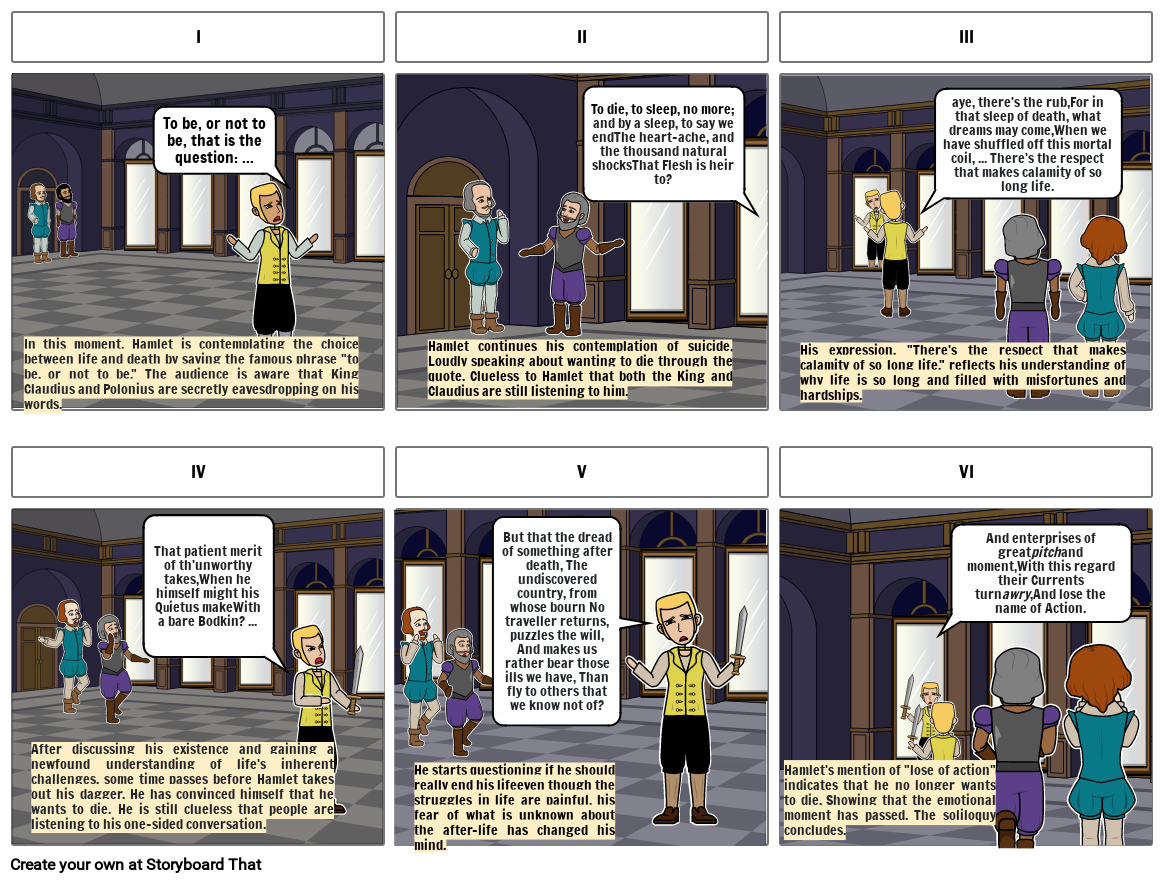Hamlet’s soliloquy from Act III, Scene i.

Texto do Storyboard
- I
- In this moment, Hamlet is contemplating the choice between life and death by saying the famous phrase "to be, or not to be." The audience is aware that King Claudius and Polonius are secretly eavesdropping on his words.
- To be, or not to be, that is the question: ...
- II
- To die, to sleep, no more; and by a sleep, to say we endThe heart-ache, and the thousand natural shocksThat Flesh is heir to?
- III
- His expression, "There's the respect that makes calamity of so long life," reflects his understanding of why life is so long and filled with misfortunes and hardships.
- aye, there's the rub,For in that sleep of death, what dreams may come,When we have shuffled off this mortal coil, ... There's the respect that makes calamity of so long life.
- IV
- That patient merit of th'unworthy takes,When he himself might his Quietus makeWith a bare Bodkin? ...
- V
- Hamlet continues his contemplation of suicide, Loudly speaking about wanting to die through the quote. Clueless to Hamlet that both the King and Claudius are still listening to him.
- But that the dread of something after death, The undiscovered country, from whose bourn No traveller returns, puzzles the will, And makes us rather bear those ills we have, Than fly to others that we know not of?
- VI
- And enterprises of greatpitchand moment,With this regard their Currents turnawry,And lose the name of Action.
- After discussing his existence and gaining a newfound understanding of life's inherent challenges, some time passes before Hamlet takes out his dagger. He has convinced himself that he wants to die. He is still clueless that people are listening to his one-sided conversation.
- He starts questioning if he should really end his lifeeven though the struggles in life are painful, his fear of what is unknown about the after-life has changed his mind.
- Hamlet's mention of "lose of action" indicates that he no longer wants to die, Showing that the emotional moment has passed. The soliloquy concludes.
Mais de 30 milhões de storyboards criados

